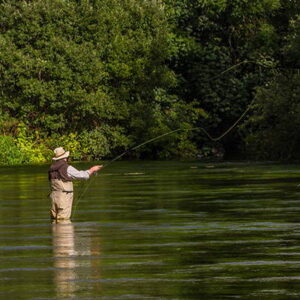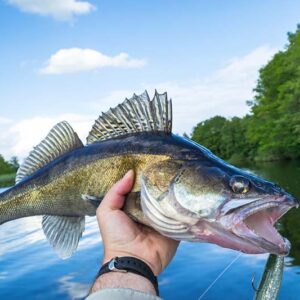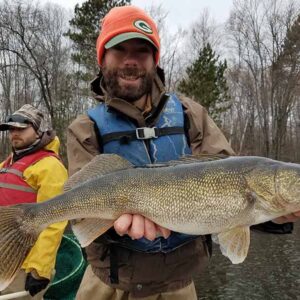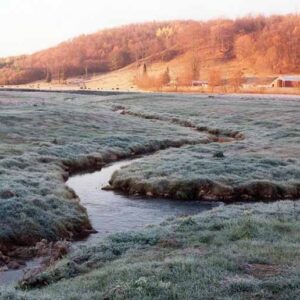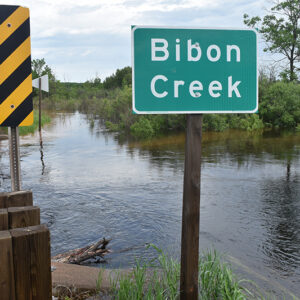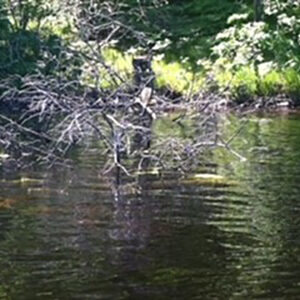WICCI’s Fisheries Working Group investigates the effects of Wisconsin’s changing climate on fish populations, aquatic communities, and fisheries.
The working group began with a focus on coldwater fisheries, working with downscaled climate projections for Wisconsin provided by the Climate Working Group. We used models and observational data to predict current and project future distributions of Brook Trout and Brown Trout in streams across the state.
We have broadened the scope of our working group to include coolwater and warmwater fishes, which are also expected to be impacted by changes in Wisconsin’s climate, and our work will address both direct and indirect effects of climate change on fishes and aquatic communities.
Summary of Issues and Impacts
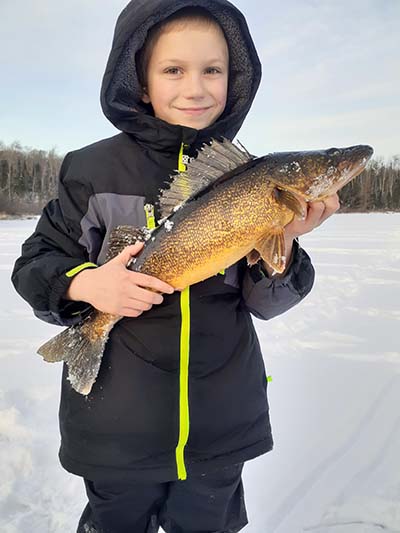
Fishing is an important part of the culture and economy in Wisconsin. Coldwater streams, including over 13,000 miles in 2,989 classified trout streams, represent an economically important recreational fishery for the state. As water temperatures warm, the fish species that can live in our waters will change.
More frequent extreme storms and heat events that are already happening as the climate warms are damaging fish habitat and stressing fisheries. These impacts will intensify as the climate continues to warm.
Wisconsin’s cool and coldwater fish assemblages, including some of the most popular and sought-after fish, are particularly at risk. These species include lake whitefish, lake trout, cisco, walleye, muskellunge, and yellow perch. Without action, habitat loss combined with overfishing and expansion of invasive species and warmwater competitors may devastate local coolwater fish populations.
Warming waters mean shifting fish communities and fishing experiences for anglers, Ojibwe subsistence fishers, commercial fishers, and others who benefit from the economic, ecological, cultural resources fishes provide.
Reduced Cool and Coldwater Fish Habitat
Increasing temperatures will reduce habitat availability for iconic cool and coldwater fish, like brook trout, cisco, lake trout, and walleye.
Expanded Warmwater Fish Ranges
Range expansions of warmwater fish, like bass and sunfish, due to warming lakes and streams will cause imbalances in fish communities favoring warmwater species.
Reduced Spawning and Refuge Habitat
Lower lake levels due to droughts will reduce spawning and refuge habitat for some fish species.
Increased Frequency of Fish Kills
Extreme heat events will increase the frequency of fish kills that may have negative long-term consequences for fish populations.
Changing Ice Fishing and Spawning Conditions
Shorter, warmer winters and increasingly unpredictable spring and fall conditions will limit ice fishing opportunities, change the timing of fish spawning and reduce the survival of newly hatched fish.
Degrading Nearshore Habitats
An increasing frequency of extreme weather events will degrade important riparian and nearshore habitats.
Increased Impacts from Invasive Species
Warming waters will increase the potential for expansion of invasive species and exacerbate the negative effects of current invasive species.
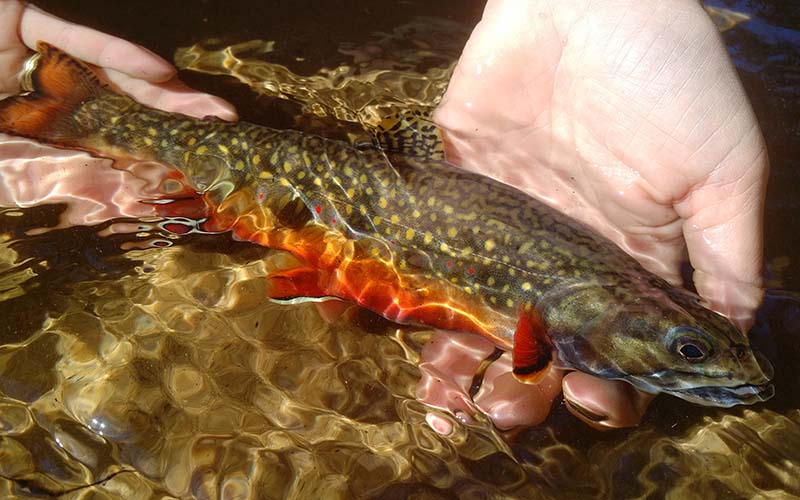
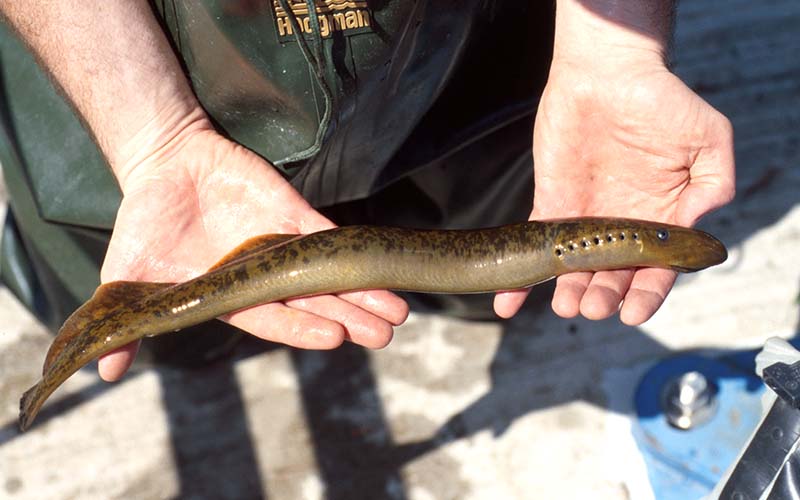
Recommended Solutions/Strategies
1
Identify and preserve stronghold populations of vulnerable cold and coolwater fish in streams by increasing protections of critical streams and watersheds for native fish and developing habitat (making stream channels narrow and deep, reducing streambank erosion, reconnecting streams to floodplains and wetlands, providing strategic shading).
2
Manage fisheries to prevent overharvest and protect productive populations of fish in lakes by identifying and protecting sentinel lakes with resilient cool and coldwater fish, riparian buffers, and land management to reduce runoff.
3
Prevent expansion of native warmwater and invasive species via outreach and education, best management practices, and expanded invasive species monitoring.
4
Protect commercially and recreationally important Great Lakes fisheries, such as yellow perch and whitefish, through harvest control rules and protection of spawning and nursery habitats.
Environmental and Climate Justice Issues
The Fisheries Working Group identified the primary environmental and climate justice concerns are the effects of climate change on subsistence and cultural fishing rights. The working group specifically calls for decision makers to consider the impacts of climate change on subsistence fishing in Wisconsin by groups such as Wisconsin’s Hmong population and First Nations tribal fisheries in the Ceded Territory.
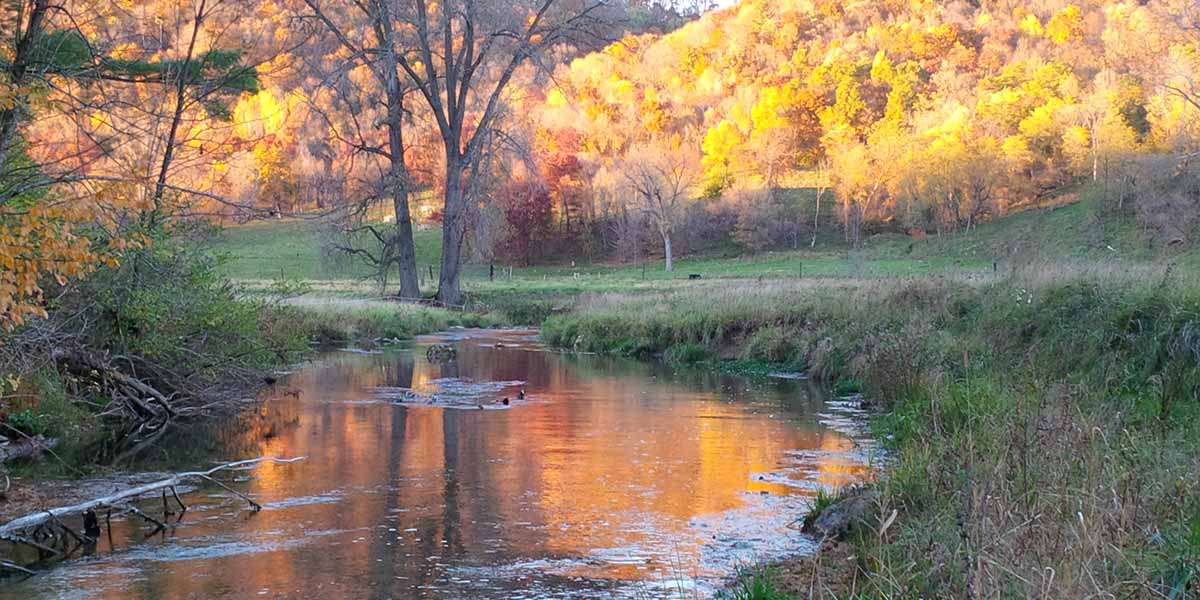
Resources
This is an accordion element with a series of buttons that open and close related content panels.
Our Team
Stakeholders and Partners
- University of Wisconsin
- Wisconsin Department of Natural Resources
- Great Lakes Indian Fish and Wildlife Commission
- Trout Unlimited
- Center for Climatic Research, Nelson Institute for Environmental Studies, UW-Madison
Members
- Zach Feiner (co-chair), Research Scientist, Wisconsin Department of Natural Resources, Zachary.Feiner@wisconsin.gov
- Alex Latzka (co-chair), Systems Biologist, Wisconsin Department of Natural Resources, Alexander.Latzka@wisconsin.gov
- Matthew Mitro, Research Scientist, Wisconsin Department of Natural Resources
- Greg Sass, Research Program Supervisor, Wisconsin Department of Natural Resources
- Stephanie Shaw, Research Scientist, Wisconsin Department of Natural Resources
- Iyob Tsehaye, Research Scientist, Wisconsin Department of Natural Resources
- Holly Embke, Research Scientist, United States Geological Survey Midwest Climate Adaptation Science Center
- Jared Homola, Research Scientist and Assistant Unit Leader, United States Geological Survey
- Dan Isermann, Research Scientist and Unit Leader, United States Geological Survey
- Aaron Shultz, Climate Change Inland Fisheries Biologist, Great Lakes Indian Fish & Wildlife Commission
- Colin Dassow, Research Scientist, Wisconsin Department of Natural Resources

